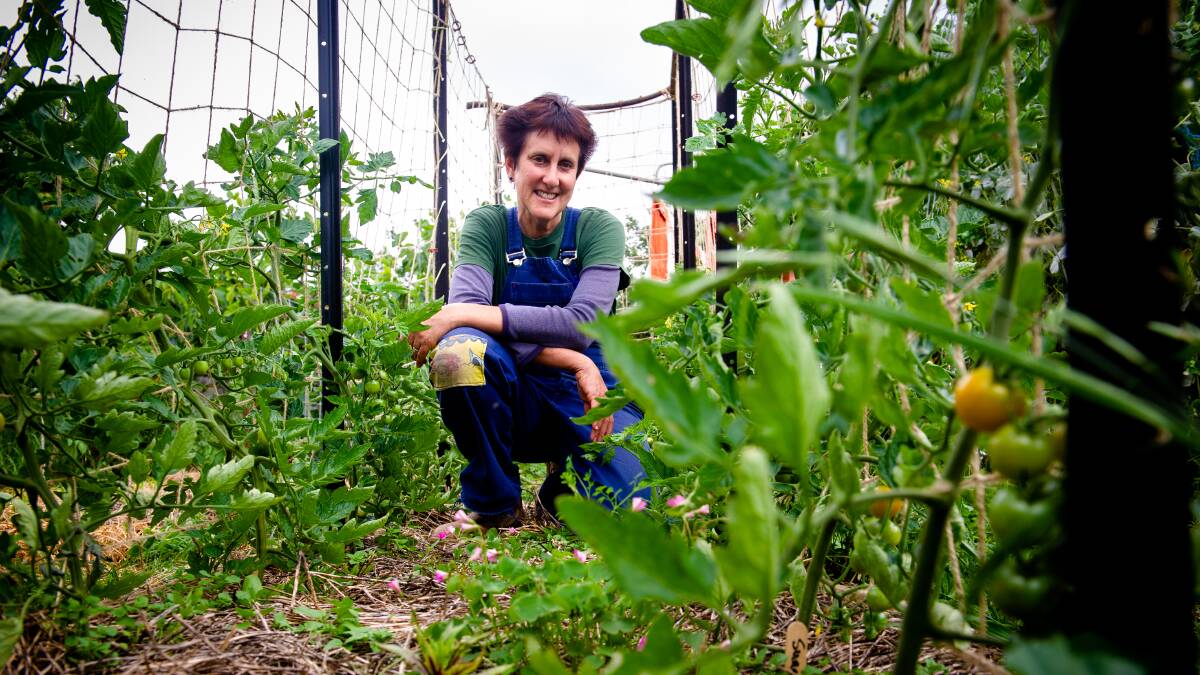
For Ainslie Urban Farm owner Fiona Buining, growing and harvesting local produce has long been part of her life.
"I've been growing food for about 30 years. I love eating our own food because there are no chemicals on it. Its full of great nutrients and very healthy," Ms Buining said.
The passion led to the creation of a business selling microgreens to Canberra restaurants.
Ainslie Urban Farm operates on permaculture principles, a human-centred approach to designing sustainable systems.
"I wanted to grow microgreens using a sustainable closed-loop business model. So I grow in an organic potting mix that I buy in bulk. I don't use any nutrients or chemicals, they're just purely soil-grown and all the nutrients required for the plants are actually in the soil," Ms Buining said.
"And I grow in recycled plastic trays that are made in Australia. And I collect all those trays each week and wash them and reuse them."
The ACT government is hoping more people follow the Ainslie Urban Farm's lead, opening community consultation for its Capital Food and Fibre Strategy in an effort to build local food systems and increase food security.
In the project jointly funded by the territory government and the Australian government's Future Drought Fund, the strategy would provide a roadmap to deliver social, environmental and economic benefits based on secure, climate-resilient food and fibre production across the ACT.
Supply chain issues caused by the COVID pandemic have highlighted the need to invest in urban and regional agriculture and build a thriving local food economy.
It's estimated 90 per cent of Canberra's leafy vegetables and fruit come from the Sydney region alone.
Ms Buining said there was an unmet demand for locally produced food in Canberra.
"Frequently I have people in the community as well as restaurants asking if they can buy food from our place," she said.
"If we're relying on produce that comes from so far away with those big transport systems and warehouse, certainly there's an economic and environmental impact of that food system and a reliability issue when things go wrong."
Ms Buining, who was awarded a Churchill Fellowship in 2020 to investigate vocational pathways for aspiring food growers, pointed to the lack of access to land and skill development as impediments to local food production.
Agricultural land currently occupies 15 per cent of the ACT, and there are concerns this land could be further diminished through urban development as Canberra's population grows.
"Land is very expensive and in urban areas it seems to be that the priority for land is more for urban development then identifying land suitable for food production and growing food," Ms Buining said.
"It would be really fabulous if the ACT government was prepared to identify land that's suitable for agriculture and come to an arrangement to use land in Canberra to grow serious amount of food for Canberra."
Ms Buining also called for government investment into vocational training.
"To actually grow food involves quite a serious set of skills. And currently, there's no vocational pathway for someone to become a food grower, because studying horticulture is not about being an urban farmer and agriculture is also not about that."
"We need a vocational pathway and I would like to see a nationally recognised training program for aspiring food growers,"
Patchwork Urban Farm founder Karina Vennonen said that there had been an increased interest in local food produced with environmentally conscious practices in recent years.
"I think the growing awareness of climate and ecological breakdown has got people thinking they want their food supply to be something they can rely on, especially throughout COVID-19."
The Patchwork Urban Farm co-operative started when a group of friends transformed five Canberra backyards into working urban farms used to grow vegetables under a Community Supported Agriculture model.
Customers subscribe to weekly vegetable deliveries for the year, where a sliding scale payment system is used to ensure the produce is accessible to everyone regardless of financial circumstances.
Ms Vennonen agreed aspiring farmers in urban settings needed more access to land.
"I think land access is an issue. Being able to use backyards is great in a lot of ways but for Canberra to really be a strong advocate for urban agriculture would involve urban planning setting aside spaces for agriculture," she said.
"As well as decreasing bureaucratic processes for public land to grow food in."
Community submissions on the Capital Food and Fibre Strategy close in February, while the roadmap is set to be released at the end of next year.







